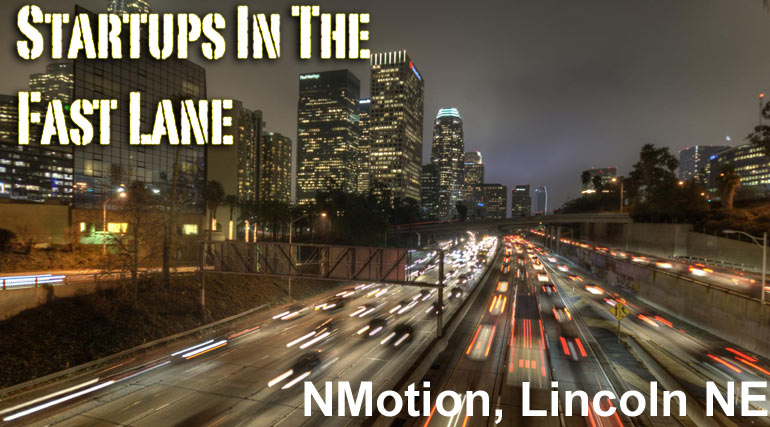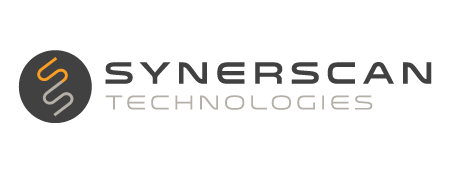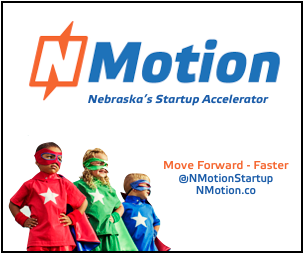
While EMR (electronic medical records) are nothing new, and innovation continues to change the doctor’s daily life, there hasn’t been nearly as much innovation centered around the nurses. Specifically, nurses that are making rounds at any hospital or treatment facility.
Nurse rounds are still often documented using a clipboard, pen, and paper. If nurses need to enter something into an EMR, they often do it at the nurse’s station, transcribing it from that pen and paper.
It takes so long that Bryan Health in Lincoln, Nebraska sought the help of a Lincoln startup called SynersScan to help solve that problem. Typically it’s the other way around. The startup comes up with an idea and then tries to sell it to the user. Now there are users built in, in the case of Bryan Health, with more users waiting in the wings.
 SynerScan, which is currently accelerating at Lincoln’s NMotion accelerator, is creating a digital platform to manage nurses rounds.
SynerScan, which is currently accelerating at Lincoln’s NMotion accelerator, is creating a digital platform to manage nurses rounds.
Synerscan is the latest startup in the “Fastlane” interview feature that talks with a startup currently in an accelerator program. Check out our interview below.
What is the name of your startup
SynerScan Technologies, or simply SynerScan.
What problem are you solving
What we’ve done is develop a software solution that enhances the benefits of hourly nursing rounds in hospitals. This process is currently documented on a physical sheet of paper, causing a couple problems. 1) That sheet of paper is typically thrown away, providing little to no feedback to management, and 2) Backlogging and accountability of nursing staff has become an issue as a result. What we’ve done is digitize the entire process, uncovering a number of value adds in the process. For example, we can now provide visual cues for any staff member to know when a round is due, real-time operational insight for management, and revolutionary communication to friends and family.
The best part about our solution is that we began with market validation. We are currently partnered with Bryan Health in Lincoln, who actually came to us to solve this very problem. What most companies do is spend months developing a solution only to find out that nobody actually wants to use it. We had a top 50 cardiovascular hospital come to us and say “here is our problem, who is able to solve it for us?”. That validation out of the gate has had a huge impact on our traction and chances of success moving forward.
The ultimate goal in changing the process of nursing rounds is to increase patient satisfaction in hospitals. Hourly rounding has been proven to increase patient satisfaction, decrease falls, and provide greater quality of care as a result. A hospital’s patient satisfaction score is what determines the amount of reimbursement a hospital receives from Medicare and Medicaid. These scores also determine the salary and benefits of a hospital’s executive staff. For these reasons alone, incentives are very high for a hospital to increase patient satisfaction. Our solution provides just that.

Why now?
A lot of these incentives have come about as a result of recent healthcare reform. Hospitals will be compared to one another relative to patient satisfaction, infection rates, and many other metrics. Hospitals will be driven by quality, service, and costs in order to compete. Government sanctioned funds will be given or taken dependent on where the hospital ranks in regards to these metrics. For this reason, it will become imperative that hospitals implement tools to maintain a competitive advantage in the industry.
The US healthcare system is at a critical point in increasing quality of care for patients. Hospitals will no longer receive reimbursement based on a “pay-for-reporting” model, where they were simply required to post patient satisfaction scores. Every hospital in the country will now be reimbursed on a “pay-for-performance” model, where the quality of those scores will determine each hospital’s reimbursement rate.
Who are your competition?
There are a number of companies recognizing the potential of increasing patient satisfaction in hospitals. What’s great is that there is no one single way of doing so. What’s frustrating is that there are a lot of unknown and unavoidable factors that affect a patients perspective of their care. First impressions, last impressions, and unforeseen occurrences can drastically alter a patients perception of their care.
Although companies like Scan Am and Walsh Integrated have similar solutions in the healthcare space, we have a few tricks up our sleeve that help differentiate us as serious players in the industry.
What’s your secret sauce?
What really sets us apart from our competition is the communication platform we have engineered to provide friends and family with relative insight on the condition of their loved one. With our solution, we are able to push nursing round information to a family members smartphone, tablet, or PC. If you have to be at work or home with the kids, no longer do you have to wonder about the kind of care your significant other is getting. The feedback we’ve received on this aspect of our solution alone has been outstanding. Since our launch at Bryan Health, we have helped family members from San Francisco, Dallas, Chicago, Minneapolis, Kansas City, and everywhere in-between see the quality of care their loved ones were receiving, all in real-time. Imagine you had a child or spouse in the hospital and the importance of a tool like this because quite clear.
Where are you/were you based before NMotion?
Born and raised right here in Lincoln.
Why NMotion?
There are some really cool and innovative things happening in Lincoln right now. Most people are oblivious to this fact. We are still highly referred to as a flyover state and this simply isn’t the case. Our entire founding team is comprised of University of Nebraska – Lincoln alumni, and one of our primary goals is to change the perception people have about Lincoln and the potential that remains untapped here. Jumping on the opportunity to be a part of Lincoln’s first accelerator program was a no brainer.
What’s one lesson you’ve learned since the NMotion session has started.
Before NMotion, our team was progressing at a steady rate. We were making informed decisions, building relationships, and learning everything as we went. What we realized very quickly after starting NMotion is that we weren’t moving fast enough. We were doing too much strategizing and needed to simply begin executing. We are now moving faster, breaking things, learning quickly, and repeating.
Where can people find out more?



